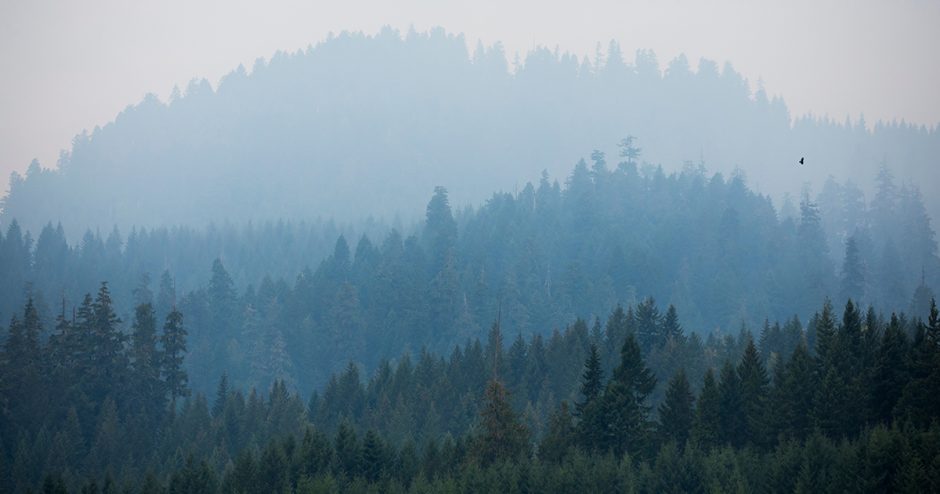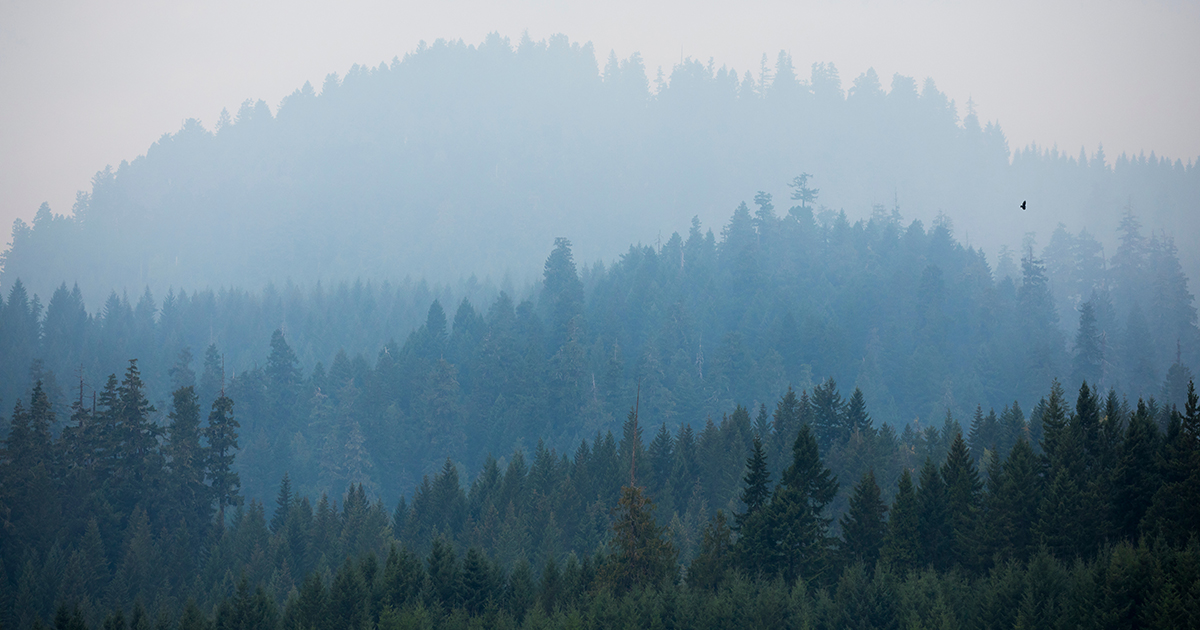
As another wildfire season grips communities across B.C. and Canada, three new projects being led by UBC Faculty of Medicine researchers will examine the profound and lasting toll that wildfire smoke takes on human health.
Supported by new funding from Genome BC, the three projects will delve into the genetic-level impacts of wildfire smoke exposure to improve long-term health outcomes.
“These projects are specifically designed to uncover what makes our vulnerable populations—from newborns to those with chronic conditions—more susceptible to wildfire-related respiratory issues,” said Suzanne Gill, President and CEO, Genome BC. “We hope this knowledge can both inform treatment and care within our healthcare system and reduce the overall economic toll of wildfires.”
Composed of particulate matter that can infiltrate our lungs and bodies, wildfire smoke is known the exacerbate existing medical conditions and potentially trigger new ones. The costs are staggering, both in human lives and healthcare dollars, with Health Canada estimating up to 240 deaths and $1.8 billion in annual costs due to short-term health effects along.
The three projects exemplify how genomics research is providing critical insights into the complex interplay between our environment and health.
Read on to learn more about each of the projects.
Wildfire Exposure and Early Childhood Health
The next generation of British Columbians could be feeling the effects of wildfires before they even take their first breath. Using a holistic approach, this project will study the impact of wildfire disaster exposure during pregnancy, including whether it could have lasting effects on how genes are expressed in developing children and how this may increase their risk for respiratory conditions such as asthma, bronchitis, wheezing, hives, eczema and other allergic reactions.
The project is led by Dr. Michael Kobor, the Edwin S.H. Leong UBC Chair in Healthy Aging – a UBC President’s Excellence Chair and a professor in the department of medical genetics.
Dr. Kobor believes the results can inform public health policies, including around respiratory health, and especially for vulnerable groups such as infants and pregnant people.
“With this research, we aim to better our understanding of the impacts of prenatal wildfire disaster exposure on the next generation,” he said. “Early-life environments can have a lasting impact on people throughout the course of their lives, including on their health outcomes. We hope this work will help shape healthy futures for children as global temperatures rise and wildfires become increasingly common.”
How Wildfire Smoke Affects People with COPD
For the over two million Canadians living with Chronic Obstructive Pulmonary Disease (COPD), wildfire smoke presents a particularly grave threat. COPD is already the leading cause of hospitalization in Canada, costing our healthcare system an estimated $1.5 billion annually. Wildfire smoke can significantly worsen symptoms and lead to severe complications for COPD patients.
Dr. Don Sin, a professor of medicine at UBC and director of the Centre for Heart Lung Innovation, and Dr. Graeme Koelwyn from Simon Fraser University are studying the genomic changes in innate immune cells — our first line of defense against inhaled particles — of COPD patients.
Their research aims to understand how these patients’ bodies respond to wildfire smoke at the genetic level as symptoms become worse, and to identify effective treatments.
“This information is critical to develop disease management and exposure mitigation strategies for people living with COPD, especially in this time of increasing societal and financial burden within our changing world and environment,” said Dr. Koelywn.
How Wildfire Smoke and Aeroallergens Affect Lung Health
Dr. Emilia Lim, a UBC professor of biochemistry and molecular biology, and Dr. Min Hyung Ryu, a UBC professor of respiratory medicine, are focusing on airborne allergens (aeroallergens) triggered by the increase of atmospheric carbon dioxide and high temperatures that happen when there are frequent wildfires. These situations also tend to prolong allergy seasons.
“Aeroallergens are harmful to everyone, but people with lung conditions such as asthma, COPD and lung cancer survivors are at higher risk,” said Dr. Lim. “It’s important to know how these groups are affected differently.”
The researchers want to understand the links between our individual genetic differences and environmental triggers.
“Identifying populations that are susceptible to these changes can help us find better ways to prevent and treat respiratory diseases,” said Dr. Ryu.
A version of this story was originally published on the Genome BC website.

